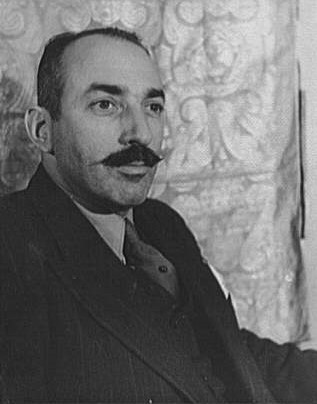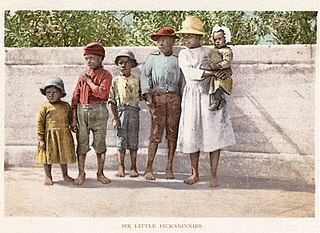
The American Language; An Inquiry into the Development of English in the United States, first published in 1919, is a book written by H. L. Mencken about the English language as spoken in the United States.

The American Language; An Inquiry into the Development of English in the United States, first published in 1919, is a book written by H. L. Mencken about the English language as spoken in the United States.
Mencken was inspired by "the argot of the colored waiters" in Washington, as well as one of his favorite authors, Mark Twain, and his experiences on the streets of Baltimore. In 1902, Mencken remarked on the "queer words which go into the making of 'United States.'" The book was preceded by several columns in The Evening Sun. Mencken eventually asked "Why doesn't some painstaking pundit attempt a grammar of the American language... English, that is, as spoken by the great masses of the plain people of this fair land?"
In the tradition of Noah Webster, who wrote the first American dictionary, Mencken wanted to defend "Americanisms" against a steady stream of English critics, who usually isolated Americanisms as borderline "perversions" of the "mother tongue". Mencken assaulted the prescriptive grammar of these critics and American "schoolmarms", arguing, like Samuel Johnson in the preface to his dictionary, that language evolves independently of textbooks.
The book discusses the beginnings of "American" variations from "English", the spread of these variations, American names and slang over the course of its 374 pages. According to Mencken, American English was more colourful, vivid, and creative than its British counterpart.
The book sold exceptionally well for a reference book — 1500 books, the entire first printing, in less than 2 years. [1] The book was an early title published by Alfred A. Knopf and was revised three times in the author's lifetime. [1] Reviews of the book praised it lavishly, with the exception of one by Mencken's old nemeses, Stuart Sherman.
Many of the sources and research material associated with the book are in the Mencken collection at the Enoch Pratt Free Library in Baltimore, Maryland.
The first edition of 1919 was revised in 1921 and 1923; the fourth "corrected, revised, and enlarged" edition was published in 1936. Mencken released two full-sized Supplements to the main volume, in 1945 and 1948, based on the boom in linguistics articles. An abridged single-volume compilation of the original volume and supplements was edited by Raven I. McDavid Jr. and published in 1963.
An audiobook version was released in 2021 by Spoken Realms, read by Rebecca H. Lee [2]

The Tom Collins is a Collins cocktail made from gin, lemon juice, sugar, and carbonated water. First memorialized in writing in 1876 by Jerry Thomas, "the father of American mixology", this "gin and sparkling lemonade" drink is typically served in a Collins glass over ice. A non-alcoholic "Collins mix" mixer is produced, enjoyed by some as a soft drink.

Theodore Herman Albert Dreiser was an American novelist and journalist of the naturalist school. His novels often featured main characters who succeeded at their objectives despite a lack of a firm moral code, and literary situations that more closely resemble studies of nature than tales of choice and agency. Dreiser's best known novels include Sister Carrie (1900) and An American Tragedy (1925).

Henry Louis Mencken was an American journalist, essayist, satirist, cultural critic, and scholar of American English. He commented widely on the social scene, literature, music, prominent politicians, and contemporary movements. His satirical reporting on the Scopes Trial, which he dubbed the "Monkey Trial", also gained him attention. The term Menckenian has entered multiple dictionaries to describe anything of or pertaining to Mencken, including his combative rhetorical and prose style.

Barbara Wertheim Tuchman was an American historian and author. She won the Pulitzer Prize twice, for The Guns of August (1962), a best-selling history of the prelude to and the first month of World War I, and Stilwell and the American Experience in China (1971), a biography of General Joseph Stilwell.

OK is an English word denoting approval, acceptance, agreement, assent, acknowledgment, or a sign of indifference. OK is frequently used as a loanword in other languages. It has been described as the most frequently spoken or written word on the planet.

The American Legion, commonly known as the Legion, is a patriotic organization of U.S. war veterans headquartered in Indianapolis, Indiana. It comprises state, U.S. territory, and overseas departments, in turn, made up of local posts. It was established in March 1919 at Paris, France, by officers and men of the American Expeditionary Forces (A.E.F.). In September 1919, it was chartered by the U.S. Congress.

Alfred Abraham Knopf Sr. was an American publisher of the 20th century, and co-founder of Alfred A. Knopf, Inc. His contemporaries included the likes of Bennett Cerf and Donald Klopfer, and Frank Nelson Doubleday, J. Henry Harper and Henry Holt. Knopf paid special attention to the quality of printing, binding, and design in his books, and earned a reputation as a purist in both content and presentation.

Pickaninny is a pidgin word for a small child, possibly derived from the Portuguese pequenino. It has been used as a racial slur for African American children and a pejorative term for Aboriginal children of the Americas, Australia, and New Zealand. It can also refer to a derogatory caricature of a dark-skinned child of African descent.

Y'all is a contraction of you and all, sometimes combined as you-all. Y'all is the main second-person plural pronoun in Southern American English, with which it is most frequently associated, though it also appears in some other English varieties, including African-American English and South African Indian English. It is usually used as a plural second-person pronoun, but whether it is exclusively plural is a perennial subject of discussion.

Terrance Alan Teachout was an American author, critic, biographer, playwright, stage director, and librettist.

Joseph Hergesheimer was an American writer of the early 20th century known for his naturalistic novels of decadent life amongst the very wealthy.

Devil Dog is a nickname for a United States Marine coined during World War I.

Julia Peterkin was an American author from South Carolina. In 1929 she won the Pulitzer Prize for Novel/Literature for her novel Scarlet Sister Mary. She wrote several novels about the plantation South, especially the Gullah people of the Lowcountry. She was one of the few white authors who wrote about the African-American experience.
Cornelis is a Dutch form of the male given name Cornelius. Some common shortened versions of Cornelis in Dutch are Cees, Cor, Corné, Corneel, Crelis, Kees, Neel and Nelis.

The Muhlenberg legend is an urban legend in the United States and Germany. According to the legend, the single vote of Frederick Muhlenberg, the first ever Speaker of the US House of Representatives, prevented German from becoming an official language of the United States. The story has a long history and has been told in several variations, which may be based in part on actual events.

During the ten decades since its establishment in 1919, the Communist Party USA produced or inspired a vast array of newspapers and magazines in the English language.
Bloviation is a style of empty, pompous, political speech that originated in Ohio and was used by US President Warren G. Harding, who described it as "the art of speaking for as long as the occasion warrants, and saying nothing". His opponent, William Gibbs McAdoo, compared it to "an army of pompous phrases moving over the landscape in search of an idea."
Frederick Lewis Schuman (1904–1981) was an American professor of history, political science and international relations at Williams College.
The anglicisation of personal names is the change of non-English-language personal names to spellings nearer English sounds, or substitution of equivalent or similar English personal names in the place of non-English personal names.